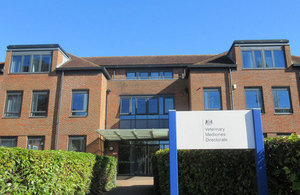New HIV diagnoses in gay and bisexual men at their lowest in 20 years
The number of gay and bisexual men (GBM) with newly diagnosed HIV fell to the lowest point in 20 years, according to a new report from Public Health England (PHE) published today.
The report shows there were 1,700 new HIV diagnoses in GBM in 2019 compared to 1,500 in 2000.
Overall, the number of people with a new HIV diagnoses fell by 10% (from 4,580 in 2018 to 4,139 in 2019). There was also a 34% decline from a peak of 6,312 new diagnoses in 2014.
There were 1,700 new HIV diagnoses in gay and bisexual men (GBM) in 2019 compared to around 1,600 cases in heterosexual adults. This is the lowest number of new HIV diagnoses in GBM since the year 2000 (1,500) and since 1998 in heterosexual adults (1,600).
HIV transmission in GBM has fallen by 80%; newly acquired HIV infections fell from an estimated peak of 2,700 cases in 2011 to an estimated 540 in 2019 (see background information).
While the proportion of people diagnosed late remained high at 42%, the overall number decreased from around 1,900 in 2015 to 1,300 in 2019. People diagnosed late in 2019 had an eight-fold risk of death compared to those diagnosed promptly.
The decline in HIV transmission in GBM can be directly linked to the increase in combination prevention, including:
-
the use of condoms
-
pre-exposure prophylaxis (PrEP)
-
frequent HIV testing in a wide range of settings
-
starting antiretroviral therapy (ART) as soon as possible after diagnosis
Treatment is now so effective that 97% of people receiving ART have undetectable levels of virus, which means it is impossible to pass the virus on, even if having sex without condoms. Undetectable = untransmittable (U=U).
HIV testing is vital for preventing HIV-related illness and death and to achieve the goal of ending HIV transmission in the UK by 2030. The UK continues to meet the United Nations Programme on HIV and AIDS (UNAIDS) 90-90-90 targets for the third consecutive year – however, there are opportunities to improve uptake of testing and support those testing positive to continue their treatment.
Almost 300,000 people declined to have an HIV test when they attended a specialist sexual health service. Black African heterosexual women attendees were more likely to decline a test than Black African heterosexual men (20% versus 9% declined testing) but less likely than heterosexual women and men overall (25% versus 13%). More focused conversations on HIV, testing, prevention and treatment in schools and clinical settings can help to combat high rates of declined tests.
By comparison, only 4% of GBM attending specialist sexual health services declined an HIV test – this is the group in which greatest declines in HIV transmission have been achieved.
Dr Valerie Delpech, Head of HIV Surveillance at PHE, said:
In the UK, we have made great progress towards eliminating HIV transmission by 2030. Frequent HIV testing, the offer of PrEP among those most at risk of HIV, together with prompt treatment among those diagnosed, remain key to ending HIV transmission by 2030.
Further progress can only be achieved if we also address the inequalities in reducing HIV transmission that exist around sexuality, ethnicity and geography.
The most common way of getting HIV in the UK is through sex with a person who is unaware of their HIV infection.
You can protect yourself from HIV by consistent and correct condom use with new and casual partners, by using PrEP, or if your partner is on treatment and is undetectable if they are living with HIV. Correct and consistent condom use will also stop you getting or transmitting other sexually transmitted diseases (STIs).
People can get tested through free tests available from sexual health clinics, GP surgeries, as well as through a self-sampling service or by using a self-testing kit.
Background information
Those at risk of HIV and STIs can still access services through sexual health clinics during the COVID-19 pandemic. Many clinics offer online testing, which means people can order tests using clinic websites, take them in the privacy of their own home, return by post and receive results via text, phone call or post.
New HIV diagnoses reflect diagnoses that occurred within a year. Since people can live with HIV for many years without being aware of their HIV infection, trends in diagnoses do not necessarily reflect trends in newly acquired infections. We use models to estimate newly acquired infections (infections acquired recently) for gay and bisexual men only.

